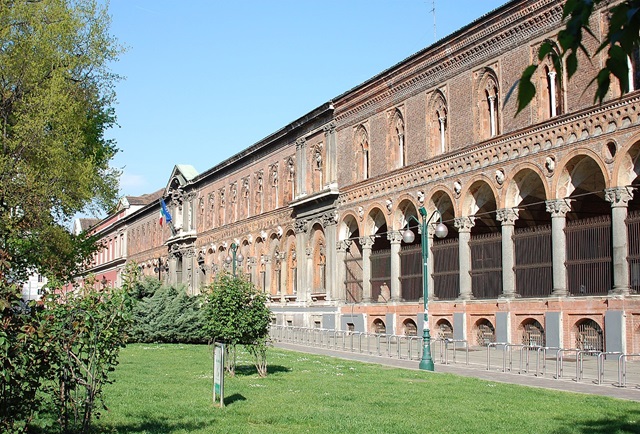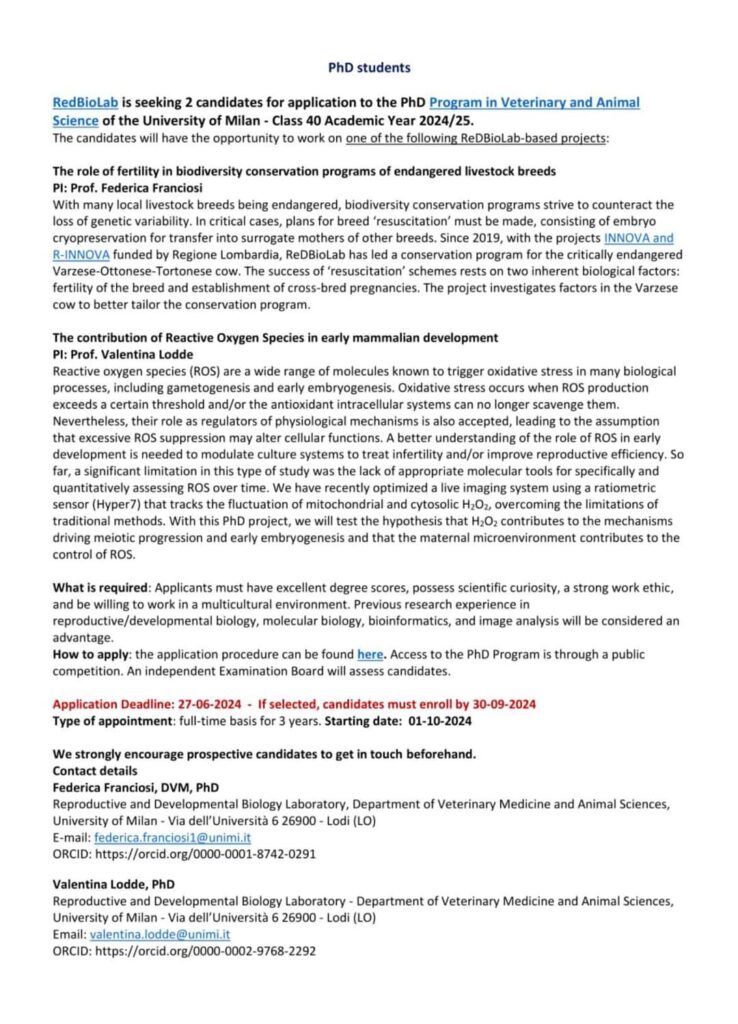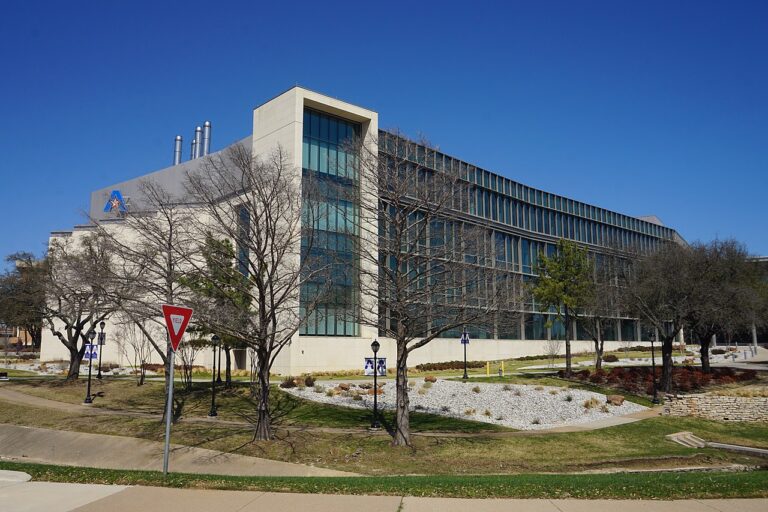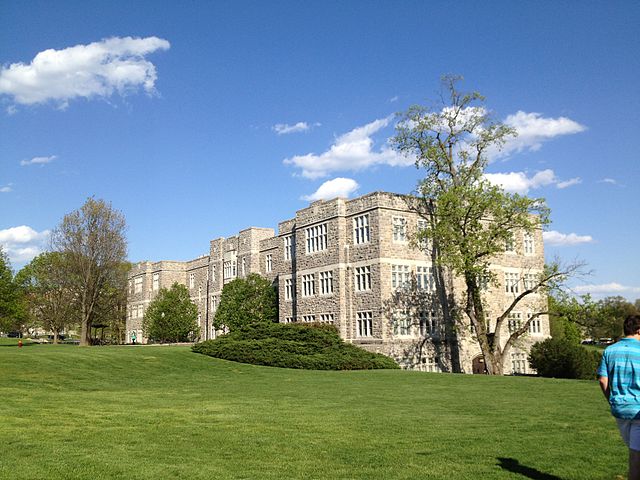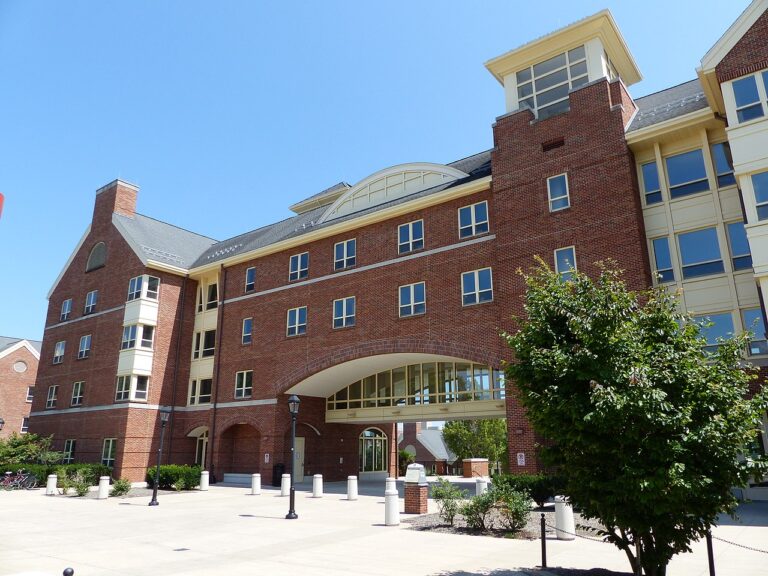Join ReDBioLab for PhD Program in Veterinary and Animal Science, University of Milan, Academic Year 2024/25
ReDBioLab is seeking two candidates for the PhD Program in Veterinary and Animal Science at the University of Milan. Candidates will have the opportunity to work on one of the following ReDBioLab-based projects:
Project 1: The Role of Fertility in Biodiversity Conservation Programs of Endangered Livestock Breeds
Principal Investigator: Prof. Federica Franciosi
With many local livestock breeds being endangered, biodiversity conservation programs strive to counteract the loss of genetic variability. In critical cases, plans for breed ‘resuscitation’ must be made, consisting of embryo cryopreservation for transfer into surrogate mothers of other breeds. Since 2019, with the projects INNOVA and R-INNOVA funded by Regione Lombardia, ReDBioLab has led a conservation program for the critically endangered Varzese-Ottonese-Tortonese cow. The success of ‘resuscitation’ schemes rests on two inherent biological factors: fertility of the breed and establishment of cross-bred pregnancies. This project investigates factors in the Varzese cow to better tailor the conservation program.
Project 2: The Contribution of Reactive Oxygen Species in Early Mammalian Development
Principal Investigator: Prof. Valentina Lodde
Reactive oxygen species (ROS) are a wide range of molecules known to trigger oxidative stress in many biological processes, including gametogenesis and early embryogenesis. Oxidative stress occurs when ROS production exceeds a certain threshold and/or the antioxidant intracellular systems can no longer scavenge them. Nevertheless, their role as regulators of physiological mechanisms is also accepted, leading to the assumption that excessive ROS suppression may alter cellular functions. A better understanding of the role of ROS in early development is needed to modulate culture systems to treat infertility and/or improve reproductive efficiency. We have recently optimized a live imaging system using a ratiometric sensor (Hyper7) that tracks the fluctuation of mitochondrial and cytosolic H2O2, overcoming the limitations of traditional methods. With this PhD project, we will test the hypothesis that H2O2 contributes to the mechanisms driving meiotic progression and early embryogenesis and that the maternal microenvironment contributes to the control of ROS.
Requirements:
- Excellent degree scores
- Scientific curiosity and a strong work ethic
- Willingness to work in a multicultural environment
- Previous research experience in reproductive/developmental biology, molecular biology, bioinformatics, and image analysis is advantageous
Application Procedure:
- Access to the PhD Program is through a public competition
- An independent Examination Board will assess candidates
- Application Deadline: 27-06-2024
- If selected, candidates must enroll by 30-09-2024
- Type of appointment: full-time basis for 3 years
- Starting date: 01-10-2024
Contact Information:
Federica Franciosi, DVM, PhD Reproductive and Developmental Biology Laboratory, Department of Veterinary Medicine and Animal Sciences, University of Milan
Via dell’Università 6, 26900 Lodi (LO)
Email: federica.franciosi1@unimi.it
ORCID: Federica Franciosi
Valentina Lodde, PhD
Reproductive and Developmental Biology Laboratory, Department of Veterinary Medicine and Animal Sciences, University of Milan
Via dell’Università 6, 26900 Lodi (LO)
Email: valentina.lodde@unimi.it
ORCID: Valentina Lodde
For more details and to apply, visit the University of Milan PhD Program Page. We strongly encourage prospective candidates to get in touch beforehand.
Feature photo credit: Wikipedia
If you have any inquiries or concerns about the content posted on our website, please do not hesitate to reach out to us via email (info.gradassistantship@gmail.com)

